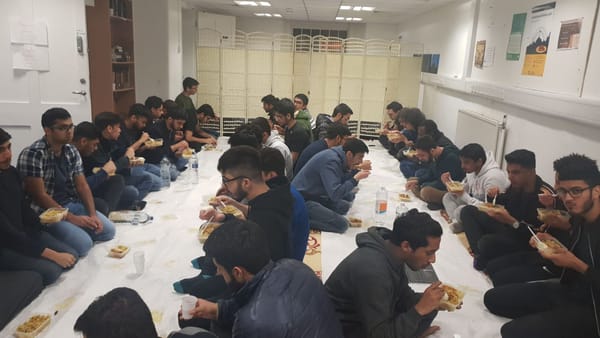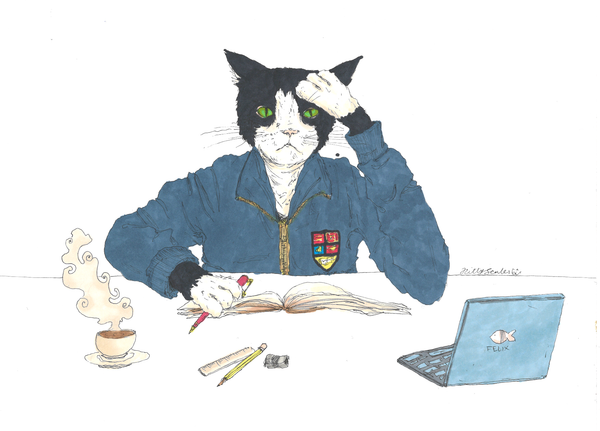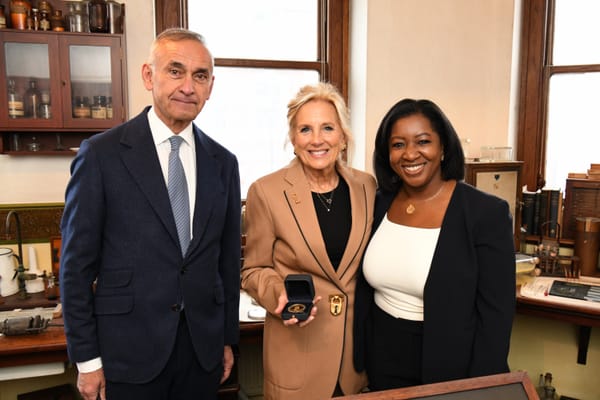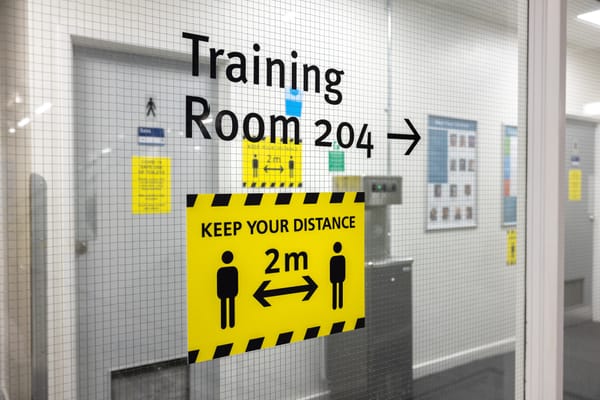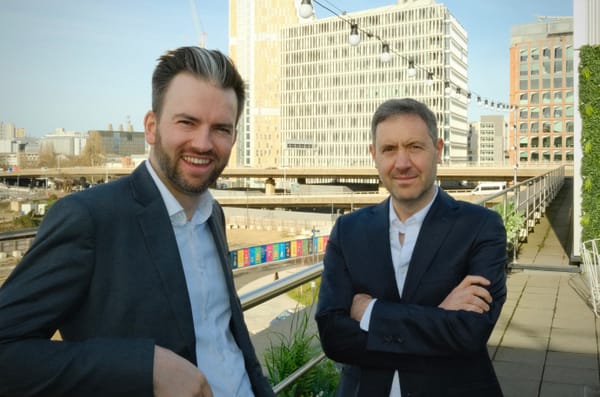Breaking the Taboo on Eating Disorders
Four years ago this week, I remember completing my UCAS form and putting Imperial as my first-choice university. At the time, I was oblivious really to my falling mental and physical health. My eating disorder started long before Imperial but it wasn’t until I got here, away from my family and support, that I realised just how overwhelming an eating disorder can be.
Eating disorders are difficult illnesses to cope with and there is a lot of misinformation about them. The media, in some ways, glorifies eating disorders and never addresses the true crux of problem. In some cases, eating disorders are about body image. However, it’s not that simple; not all eating disorders are about weight loss and the majority of eating disorder sufferers are not underweight. Eating disorders are about control and perfection. The sufferer feels out of control when eating and then might go to great lengths to regain control over eating, which manifests as dangerous behaviour.
Coming from A-levels, where you are expected to obtain >90% in exams to get an A* and anything less than 80% probably means you wouldn’t make your grade offer for this institution, fosters a level of perfectionism. Then being thrown into an environment where perfectionism in academia is nigh-on impossible is a bigger challenge than anyone really admits. For seven years, we have been trained to believe the university expectation of a “good score” is just simply not good enough. This drastic change can leave high-performing students feeling vulnerable and out-of-control.
Now, I’m not saying that A-levels or Imperial gave me an eating disorder. What they did was contribute to the lack of control that I was already feeling due to events in my own personal life. Whether my perfectionism put me at a ‘predisposition’ for an eating disorder is neither something I dispute, nor something I can really change. On some levels, perfectionism makes me a good scientist but it is unmanageable in this environment.
I had to get some control back. Eating, weight, body shape, that was something I could control. Mixed in with some poor self-esteem and body image, I didn’t even notice the illness run away from me until I was very much under its grasp.
Getting help for my eating disorder was a long process. Ultimately, I was in denial and an over reliance by doctors on BMI can mean it is difficult to access the support needed. There is dangerous underfunding of eating disorder care, which means you can be “not ill enough” to access the therapy you so desperately need. This is something battled tirelessly by campaigners but it can make accessing care tricky. BEAT, an eating disorder awareness charity have some excellent advice on how to negotiate that first meeting with a doctor. Being prepared massively helped because even when I got upset or found it difficult to talk, I had already planned what to say. The support BEAT gives is excellent and I remember being on the phone with one of their advisors the night before, talking me through the appointment and what to expect.
I was already seeing a doctor about my mental health before that ‘first meeting about eating’. My first appointment was difficult, I didn’t feel like I managed to convey my behaviour with food and the whole consultation revolved around BMI and weight. It would take another two months before I went for another appointment. The second time I was switched to someone else last minute and she seemed to take my concern more seriously. I was eventually referred onto a medical study looking at the impact of early intervention therapy in eating disorder recovery and luckily accessed therapy soon after my referral. I say “lucky”; five years with an eating disorder I was still classed as “early-intervention”.
There were times at Imperial I felt very alone. Due to an outdated and frankly horrendous notion that eating disorders only affect teenage girls, I felt that I was the only person who could possibly be walking around in this position. I was embarrassed to admit how much it was impacting my work, my relationships and my enjoyment of university. When I did reach out for help, I would categorically refuse to tell any member of staff, mental health first aider or university counsellor that I had an eating disorder. It was a secret I guarded very closely until the hold anorexia had was so strong that it became noticeable to my close friends.
I can’t thank my friends enough. My friends weren’t there to help solve my problems or advise. They’re not trained to deal with it and nor is it fair for them to have that kind of pressure. However, they were there in so many other ways; they would sit with me one-on-one because having lunch in large groups was too frightening, convince me to book an appointment with the doctor or take me for coffee before hospital appointments I was really worried about. Their willingness to support made the road to recovery seem almost doable. I felt like, even though no one knew how I felt, I wasn’t alone anymore.
Sometimes waiting for a doctor’s appointment or a counselling appointment can be too long. I found charity helplines or message boards were able to give me in-the-moment support until my next appointment. Relapse is a part of recovery; every relapse back to poor behaviour with food felt like another failure. When I did relapse, the BEAT message boards or Samaritans phoneline helped me get back on the right road much quicker than waiting for an appointment with a counsellor. Even if it were just a reminder of why I wanted to get better in the first place.
Finally, the biggest thing that helped my recovery was finding a way to relieve the pressure and stress I was under. This gave me a release of tension and allowed me to cope with and take control of my anxieties rather than having to restrict my food intake or exercise obsessively. Getting running back under control was a huge hurdle to recovery, and keeping it as a way to relieve stress and not to burn calories is at times a struggle, but it introduced me to some great new friends and gave me a place to process my problems in my own time. The extra endorphins and serotonin gave me a little boost in my day-to-day mood, which anti-depressants never managed. Most importantly, when I fell in love with running, I fell out of love with losing weight. I began to realise I needed to fuel my body.
Six months into my second degree at Imperial and officially half way through my total time spent here, I have learnt a few important lessons about my mental health. Firstly, however hard it is, the more I started talking, the easier it got. Secondly, everyone needs a coping mechanism; some are far better than others. Finally, even though I don’t know anyone else at Imperial with an eating disorder, I know no one else is alone.

